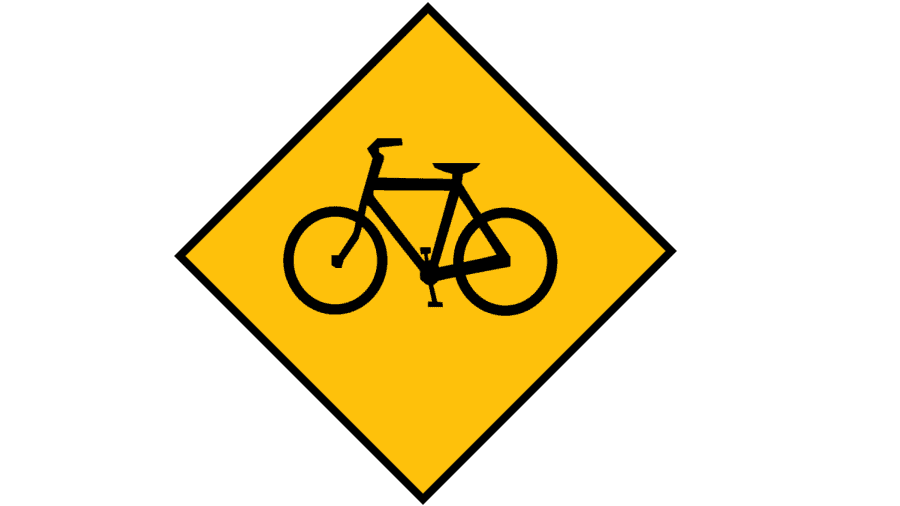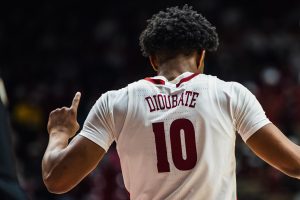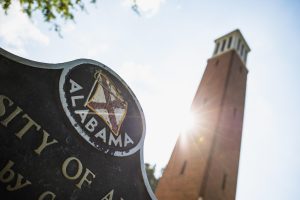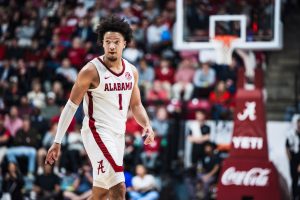‘There should be bike lanes’: Students discuss Tuscaloosa road safety
August 18, 2021
Some students have unpleasant things to say about drivers in Tuscaloosa. There are more than 21,000 out-of-state students adjusting to Alabama traffic laws, and 1 in 4 accidents are related to distracted driving.
On campus, there are lights, signs and arrows to keep cars, bikes and buses separate. On most streets in Tuscaloosa, cars, bikes and buses share the same lanes.
According to the Centers for Disease Control and Prevention, in 2018, drivers ages 15 to 19 were more likely to be distracted drivers. However, 25% of drivers in fatal accidents were between the ages of 20 and 29.
Along with distracted driving, some who aren’t used to driving as much in their home state can face anxiety from driving.
“I feel like there’s a difference between drivers in each state, especially if you have people who don’t drive as much as we do here. Not having that much experience can negatively impact their driving ability,” said Algery Hall, a senior majoring in marketing.
Cars also pose a danger to pedestrians and other vehicles. In May, a car crash on the Strip pinned a Joyride golf cart in between two cars, injuring two UA students. On Aug. 12, a pedestrian in Tuscaloosa was killed after being hit by a vehicle on 15th Street.
Not all UA students rely on driving, though; many students use bikes around campus to travel or exercise. However, the city of Tuscaloosa doesn’t have many bike lanes outside of the University’s campus, and according to the Bureau of Transportation Statistics, 43% of Americans live in areas with no bike lanes.
Although campus has bike lanes, UA has seen its fair share of bicycle accidents through the years. In 2018, a UA student bicyclist was hit by a University employee in a golf cart near Capstone Drive.
In June, a bicyclist was killed in Huntsville, Alabama, after pulling out in front of a car that didn’t have enough time to stop.
Alabama state law prohibits bike riders from traveling on sidewalks. This leaves students to find another source of transportation whenever they’re off campus.
For students who don’t have cars and rely on bikes to get around campus, it can be difficult or dangerous for them to go off campus.
According to a 2019 report by the University’s Center for Advanced Public Safety, there were 146 bicycle crashes involving cars in Alabama in 2019. Further, the report said “12% of all bicycle crashes occur on rural routes, and 88% of all bicycle crashes occur in urban streets.” Roughly 43% of the bicycle crashes were caused by the bicyclist and not the driver.
Tuscaloosa drivers also experience construction in the city. According to the Federal Highway Administration, over 200,00 people have been injured in accidents near construction zones within the last five years. Around the University, there’s often a new bridge or building being built, and road work happens on and off campus frequently.
If bike lanes are added, more construction will need to be done throughout the city to make sure bikers have safer ways to travel.
Ross Bettis, a senior majoring in communication studies, said bike lanes should be added in areas closer to campus for students, and bike safety should be emphasized.
“There should be bike lanes, even if you go to Midtown Village or Walmart. There are people that want to ride that far but can’t. Since I don’t have a choice, I had to figure something out,” Bettis said.
The idea of bike lanes causes more worry than satisfaction for some people.
“I care about the safety of others, but adding bike lanes around the city would be tumultuous to bikers. I feel like they are safer on campus because people drive more responsibly on campus,” said Kiana Palmer, a senior majoring in theater.
On campus, to ensure bike safety, students must register their bikes through myBama, use bike lanes when available, and park on bicycle racks. To ensure safety off campus, bikes are considered vehicles by Alabama state law, meaning bikers should always be as far to the right as possible when on the road.
University Recreation also has more tips for biking safety, like the appropriate attire for bikers, going slow on multi-use paths, avoiding road hazards and more.
They also advise bikers to be courteous of others and cognizant that they have the same privileges and duties as other traffic, including correctly signaling.
For those who are just learning how to ride a bike, University Recreation also offers bike rentals for students, staff an d faculty for $20 a month or $60 a semester.
And for those searching for a community they can join the Druid City Bicycle Club, a recreational club that also helps the community by providing “support and manpower to community services in West Alabama.”
For car safety, Chris D’Esposito, director of transportation services for The University of Alabama, reminds students to always follow the rules of the road and make sure they have a parking permit. The University offers a free motorist assistance program 24 hours a day for students, staff and visitors. The program offers a car battery jump and flat tire inflation.
Remember these tips to stay safe. Don’t be distracted while driving or biking, stay alert and follow traffic laws.





















